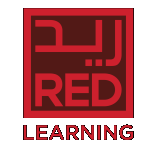In the ever-evolving landscape of project management certifications, professionals often find themselves at a crossroads, wondering which credential will best serve their career aspirations. For decades, the Project Management Professional (PMP) certification offered by the Project Management Institute (PMI) has been the gold standard, symbolizing proficiency and expertise in project management. However, in recent years, another certification has been gaining traction and challenging the dominance of PMP – the PMI Certified Practitioner (PMI-CP). So, the question arises: Is PMI-CP the new PMP?
To dissect this inquiry effectively, let’s delve deeper into the characteristics of each certification and explore their respective strengths and weaknesses.
The Established Titan: PMP
The PMP certification, established in 1984, has long been recognized globally as a benchmark for project management excellence. It signifies a comprehensive understanding of project management principles, processes, and best practices as outlined in the PMBOK (Project Management Body of Knowledge) guide. PMP certification holders demonstrate their ability to lead and direct projects, manage constraints effectively, and deliver successful outcomes within the constraints of scope, time, cost, quality, risk, and resources.
Strengths of PMP:
- Recognition and Prestige: PMP is widely recognized across industries and geographies, lending credibility and prestige to certified professionals.
- Comprehensive Knowledge: PMP covers a broad spectrum of project management topics, ensuring that certified professionals possess a thorough understanding of the discipline.
- Experience Requirement: The certification requires a significant amount of project management experience, ensuring that PMP holders have practical, hands-on expertise in managing projects.
The Up-and-Comer: PMI-CP
Introduced in 2011, the PMI Agile Certified Practitioner (PMI-ACP) certification aimed to address the growing prevalence of agile methodologies in project management. It has since evolved into the PMI Certified Practitioner (PMI-CP), reflecting a broader focus on agile and hybrid approaches to project management. PMI-CP emphasizes adaptive approaches, collaboration, and iterative development, aligning with the dynamic nature of modern project environments.
Strengths of PMI-CP:
- Agile Emphasis: PMI-CP places a strong emphasis on agile methodologies, making it particularly relevant for professionals working in agile environments or those seeking to transition into such roles.
- Flexibility: PMI-CP acknowledges a range of project management approaches, including agile, waterfall, hybrid, and more, allowing professionals to adapt their methodologies to suit specific project needs.
- Inclusivity: PMI-CP welcomes professionals from diverse backgrounds, including those without traditional project management experience, making it accessible to a broader audience.
The Verdict: Evolution, Not Replacement
So, is PMI-CP the new PMP? The answer is nuanced. Rather than viewing PMI-CP as a replacement for PMP, it’s more accurate to consider it as a complementary certification that reflects the evolving landscape of project management.
While PMP continues to hold sway as the quintessential certification for traditional project management practices, PMI-CP caters to the growing demand for agile and hybrid methodologies. Professionals aspiring to excel in project management would benefit from considering both certifications, depending on their career goals, industry trends, and the nature of projects they undertake.
In conclusion, rather than pitting PMP against PMI-CP in a battle for supremacy, embracing both certifications as valuable assets in one’s professional toolkit can provide a well-rounded skill set that caters to the diverse demands of today’s project management landscape. Whether you choose the established titan or the up-and-comer, the pursuit of continuous learning and professional development remains paramount in navigating the ever-changing terrain of project management.




